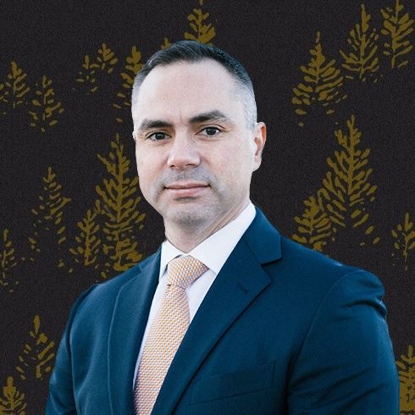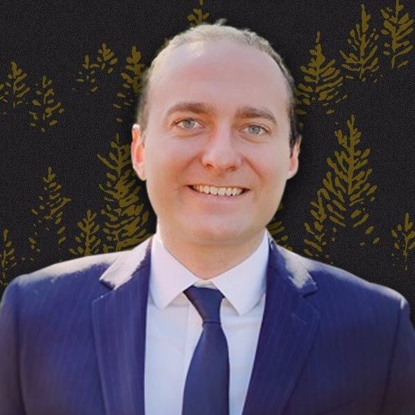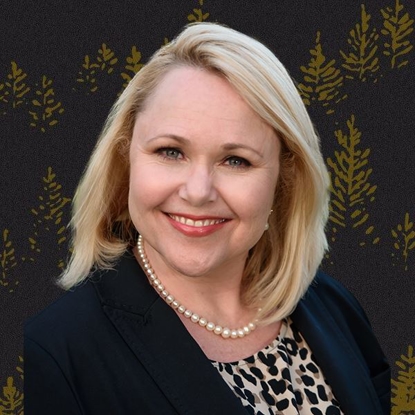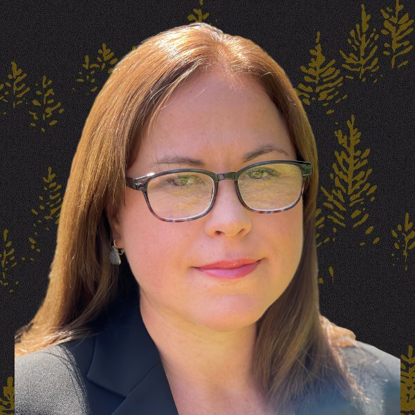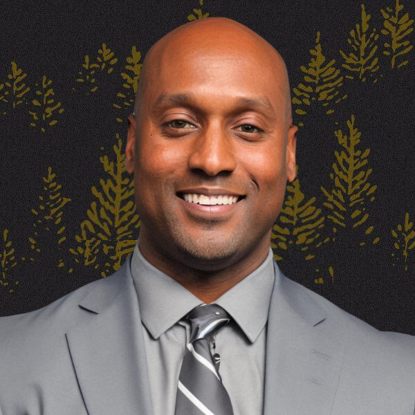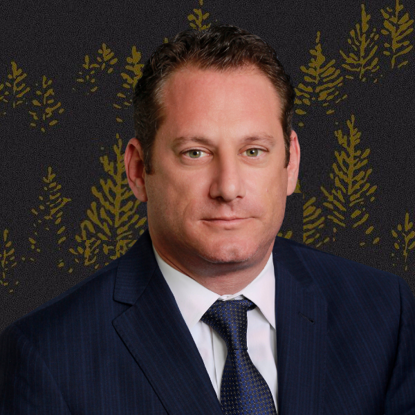
Portland Rideshare Accident Lawyers
Representing Injured Riders in Portland, OR
The rideshare industry has exploded in popularity in recent years, with both Uber and Lyft offering services in hundreds of cities across the United States, including Portland, OR. Ridesharing has become integral to many Americans' daily lives, with millions relying on these services regularly.
Despite the popularity of ridesharing, many users remain unaware of the inherent risks, particularly concerning accidents and how they might be covered by insurance. Understanding these aspects is crucial for safety and preparedness.
At Pacific Cascade Legal, we believe every rideshare user has the right to comprehend their insurance coverage and how it applies to their accident claims. Our attorneys understand Oregon's laws and regulations governing rideshare services. Whether you were a passenger, driver, or another motorist involved with a rideshare vehicle, we provide tailored, accurate legal advice for your unique situation.
Law enforcement and emergency services in Portland are adept at handling incidents involving rideshare vehicles due to the city's extensive use of such services. Familiarity with local protocols can be beneficial. Notably, places like I-5 and Portland International Airport are frequent routes for rideshare activity, occasionally leading to accidents. Awareness of these locations can help frame the dynamics of your accident claim.
Victims of rideshare accidents in Portland have the right to seek comprehensive compensation for medical expenses, lost wages, and non-economic damages such as pain and suffering. Navigating these claims requires clarity and knowledge of state law along with an understanding of rideshare company operations within this legal framework. This guidance is what Pacific Cascade Legal is committed to providing.
To learn more about your rideshare insurance coverage and how it might apply to your rideshare accident claim, call our team at (503) 573-5566.
Rideshare Laws in Oregon
Transportation Network Companies (TNCs) describe ridesharing firms like Uber and Lyft that connect drivers with passengers using personal vehicles via a mobile application. Oregon has specific regulations governing TNC operations, focusing on driver requirements, insurance, safety standards, and licensing.
Rideshare drivers in Oregon must be at least 25 years old, hold a valid driver's license, pass screenings, and undergo background checks, including criminal history and driving records. Convictions for violent crimes or significant traffic violations may disqualify candidates.
Companies must meet Oregon's insurance requirements to ensure adequate coverage during accidents. Uber and Lyft are required to maintain liability insurance throughout the ride, protecting both drivers and passengers.
Additionally, Portland's approach to transportation safety is proactive, featuring pilot programs designed to improve road safety. Such initiatives can influence rideshare operations, particularly in busy areas or zones with high pedestrian traffic. Being aware of these aspects is essential for anyone involved in a rideshare accident.
Rideshare Accident Liability
To recover damages from a rideshare accident claim, you must establish driver liability for your injuries and losses. This often involves proving the driver was negligent, which may include careless driving or failing to adhere to company safety rules.
Examples of negligence include:
- Failure to follow safety rules
- Reckless or careless driving
- Driving under the influence of drugs or alcohol
- Disregard for traffic laws
- Failure to yield
- Failure to stop at pedestrian crossings
- Failure to stop at traffic signals
Proving negligence often involves demonstrating activities that deviate from how a reasonable person would drive under similar circumstances. If a rideshare driver was on the phone or looking at a GPS when the accident occurred, the evidence will determine negligence.
Gathering evidence like witness statements, video or photos, and the driver's app data can strengthen your claim. In Portland, knowing local traffic patterns is also beneficial. High-risk intersections with complex flows or poor signage can affect fault determination, crucial in proving driver responsibility.
Rideshare Insurance Coverage
Rideshare firms must provide insurance for their drivers, though these policies may be insufficient for some claims. Occasionally, drivers lack any insurance coverage.
Rideshare insurance by Uber and Lyft varies with driver activity status within the app.
Let's explore the coverage scenarios:
- Not Logged into the App (App Off): During this phase, the driver is using their vehicle for personal use, and the rideshare company's insurance coverage usually doesn't apply. The driver's personal auto insurance policy would be the primary coverage in case of an accident or any other incidents during this time.
- Logged into the App and Waiting for Ride Requests: At this stage, the driver is actively waiting for ride requests but hasn't accepted any rides yet. Both Uber and Lyft typically offer contingent liability coverage during this period, which means that if the driver's personal auto insurance doesn't cover an incident, the rideshare company's insurance may provide limited liability coverage. However, there may be gaps in coverage, and it's essential for drivers to check with their insurance provider.
- Accepted a Ride or Driving a Passenger to Their Destination: Once the driver has accepted a ride request or has a passenger in the vehicle, the rideshare company's commercial insurance coverage is typically active. Uber and Lyft provide a higher level of coverage during this phase, including liability coverage for bodily injury and property damage to third parties. Additionally, they may offer coverage for the driver's vehicle for physical damage if the driver carries comprehensive and collision coverage on their personal policy (subject to a deductible).
Rideshare companies are required to provide $1,000,000 in liability coverage for their drivers. However, this coverage is contingent on the driver's personal insurance coverage. In other words, this coverage only applies if the driver already has personal insurance coverage.
Additionally, rideshare companies are required to provide $50,000 in uninsured/underinsured motorist coverage for their drivers. This coverage is designed to protect the rideshare driver from the liability of other drivers who do not have insurance or do not have enough insurance to cover their liability.
Understanding how this insurance functions within Portland is key. Traffic congestion varies with time and around areas like Portland State University or the Pearl District. Such factors impact claims, including speed, reaction times, and visibility.
Oregon's comparative negligence rules dictate damage allocation by fault degree. Even partial fault doesn't preclude damage recovery, but claims reduce accordingly, underscoring the importance of skilled legal counsel in managing local regulations.
What To Do After a Rideshare Accident in Portland
Rideshare accidents can be overwhelming, and knowing the appropriate steps is crucial. First, ensure everyone's safety and get medical help if needed. Minor symptoms might indicate severe injuries, so quick action is essential.
Report the accident to the police and ensure a formal report is filed, as it will be instrumental in your claim. Document the scene by photographing vehicles, injuries, street signs, and road conditions. Gather witness contacts; their testimonies can strongly support your case.
Collect the rideshare driver’s information, including insurance details and a screenshot of their app status. This supports that they were engaged with the rideshare company at crash time, affecting insurance validity. Finally, contact your insurer, avoiding deep accident discussions before consulting a lawyer, who can guide your disclosures strategically.
Why Choose Pacific Cascade Legal for Rideshare Accidents
Selecting the right legal team is pivotal to a successful rideshare accident claim. At Pacific Cascade Legal, we are committed to Portland's community. We blend comprehensive legal knowledge with client-focused service to ensure you feel supported throughout the process. Our transparent communication and aftercare program mirror our dedication to your long-term well-being.
Our team’s accolades, including Super Lawyers® recognition and perfect Avvo Ratings, demonstrate our capacity to deliver positive results for our clients. We approach every case with innovative and assertive advocacy, while remaining approachable and keeping you informed. With our deep understanding of Oregon's rideshare laws and insurance complexities, we craft tailored strategies to maximize potential compensation and relief.
Frequently Asked Questions
What Should I Do If I’m Partially At Fault?
In Oregon's rideshare accident cases, the comparative negligence rule applies, meaning you're eligible for damages even if partially at fault. However, compensation may decrease by your fault percentage; 20% responsibility results in a 20% reduction of damages. Thus, documenting the accident and gathering comprehensive evidence is vital to accurately assess fault.
Having legal counsel can help minimize perceived fault. Pacific Cascade Legal investigates case intricacies, negotiates effectively with insurers, and strives to maximize your settlement based on a fair, complete incident evaluation.
How Long Do I Have to File a Claim?
Oregon law typically allows a two-year period to file personal injury claims, including rideshare accidents. Missing this deadline might block recovery, although some factors like government involvement or minor victims may change it.
Acting swiftly is crucial to comply with legal deadlines and preserve evidence and witness accounts. Our firm assists in comprehending these nuances and navigating your claim's timeline, ensuring all necessary steps protect your rights within the permitted timeframe.
Can I Claim for Emotional Distress?
Yes, emotional distress, such as anxiety, depression, or PTSD resulting from a rideshare accident, is compensable under Oregon law. Documenting these effects with medical and psychological assessments bolsters your claim.
At Pacific Cascade Legal, we understand emotional distress's impact on life quality. We thoroughly consider these factors, diligently seeking rightful compensation to cover non-economic damages. Our objective is to ensure you receive a settlement reflecting your full experience.
Schedule a Free Consultation
If you’ve been involved in a rideshare accident in Portland, OR, understanding the legal aftermath can be daunting. At Pacific Cascade Legal, we appreciate the complexities and challenges of rideshare accident cases and are here to help secure the compensation you deserve.
Rideshare accidents vary widely, requiring coordination among drivers, passengers, insurance companies, and rideshare platforms. Informed preparation with the right legal strategy makes a significant difference. Our familiarity with Portland's traffic conditions and legal requirements enables us to provide necessary guidance for optimal results.
Navigating Portland’s complex legal landscape, with varying ordinances and safety initiatives, can influence your case's handling. With our support, you can confidently traverse these complexities and make informed decisions about your next steps. We're dedicated to being your ally, ensuring you feel guided and equipped to move forward confidently. Contact us to discover how we can assist in your case.
Contact Pacific Cascade Legal today at (503) 573-5566 for a free, no-obligation consultation.

-
 About Us
About Us -
 Resources
Resources -
 Video FAQ
Video FAQ





